Introducing the 2019 3M National Teaching Fellowship Award Winners
Celebrating some of the country’s best college and university teachers
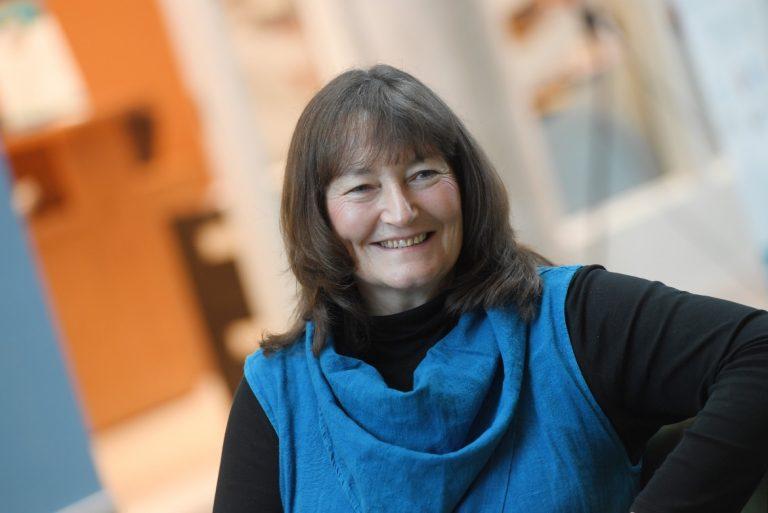
Share
The 3M National Teaching Fellowship was created in 1986 by the Society for Teaching and Learning in Higher Education (STLHE) to recognize exceptional teachers in post-secondary education. It celebrates college and university educators who show leadership in enhancing post-secondary education—often on a national or international level. The winners also each a sustained dedication to undergraduate education. Recipients become lifetime members of the society and attend the STLHE annual conference, this year at the University of Manitoba. They also participate in a four-day teaching and learning retreat in Montebello, Que. Here are the citations for this year’s fellows:
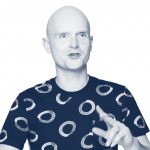 Steven Barnes
Steven Barnes
Department of Psychology, University of British Columbia
Steven Barnes cares: he cares about what students learn, about how they learn, and most importantly, about the students themselves. That concern for the student as a whole person extends to their wellness. With the growing appreciation that stress and mental illness are major problems for undergraduates, Steven took action. Along with others on campus, he established a peer-run support group—Kaleidoscope—for students facing mental health issues. Steven’s active concern is born of his own struggles with mental illness, a story that he has the courage to share with both his students and his community.
Steven’s has shown extensive leadership in curriculum design, open access online resources, and innovative technology. He designed six massive open online courses (MOOCs) and helped design a first-year course for students with low English language proficiency. He created a large body of stop-motion animations that deal with challenging topics for students of neuroanatomy and neurophysiology, and since they are all freely accessible on YouTube, they have been used by instructors around the world. Steven has championed open source materials that help alleviate financial pressure on students.
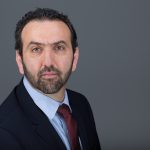 Emin Civi
Emin Civi
Faculty of Business, University of New Brunswick
Emin Civi is a true culture changer. He is an educator and consensus builder, whose efforts are dedicated to nurturing an inclusive and shared culture of teaching and learning. Emin laid the foundation for a culture of teaching excellence. He is creative and kind, adhering to the belief that little acts of caring and sharing can change lives—a form of leadership practiced in everyday interactions. Emin applies this approach to his work. In the Faculty of Business he has elevated the importance of teaching in the hiring process, and transformed the evaluation of teaching to enhance the student voice. As a leader in international business education, he contributes to the professional development of his colleagues. Emin builds engagement in his courses through real world projects such as the Promise Partnership, where students participate in marketing and fundraising to combat poverty. He believes that helping people to gain power over even little things can empower both the helper and the helped. In his teaching and his leadership, he aims to encourage a hunger for learning that extends beyond university walls, then nourishes people to reach their full potential.
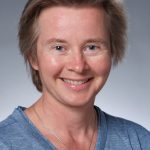 Sue Dawson
Sue Dawson
Atlantic Veterinary College, University of Prince Edward Island
In 1997, Sue Dawson led the transformation of the curriculum of the Atlantic Veterinary College. She implemented problem-based learning and broke the barriers between disciplines. This transformation is now accepted as the norm in most veterinary colleges. Through vision, consultation, and persuasion, the changes are recognized by colleagues as being truly revolutionary.
Sue has not stopped innovating and experimenting with teaching strategies. Students who became Doctors of Veterinary Medicine testify that her impact on them was equally profound. Sue creates two unspoken but unmistakable messages in the student’s mind: “You can do this” and “You matter.” She championed teaching communication, ethics, interpersonal skills, and wellness in veterinary education. As a result, Sue has won numerous teaching and leadership awards. Sue Dawson is well-recognized because of her deep caring about her discipline, her students, and the science of learning. As a former student said, “There is a little bit of Dr. Dawson in my everyday professional life and interactions with animal owners and their beloved pets.”
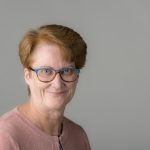
Sheri Fabian
School of Criminology, Simon Fraser University
Sheri Fabian offers her students and colleagues three gifts: opportunity, personal growth, and an understanding of both the privilege and the obligations that accompany teaching and learning. In return, Sheri’s office is filled—floor to ceiling, wall to wall—with keepsakes from students and colleagues whose lives she’s touched throughout her teaching career. These mementos illustrate her commitment to teaching and higher education. Sheri does not want to be mediocre, good, or superior. Instead, she strives to inspire. A former student noted that Sheri was so much more than a teacher: “Good teachers change students’ lives. Sheri changed the way I view myself, hence the way I see the world. She showed me there is a path for me with a pat and push on my back.”
Rather than shy away from social issues in her criminology teaching, Sheri has learned to prepare students to feel discomfort and emotion, and to warn them that they may struggle with the issues and material. Sheri has built on her 15 years of research for residential school survivors to embrace the obligation to decolonize education and to incorporate Indigenous ways of knowing into classrooms and institutions.
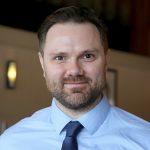 Brett McCollum
Brett McCollum
Department of Chemistry and Physics, Mount Royal University
Brett McCollum brings imagination and courage into the learning process in chemistry. This has inspired him to question everything from the fate of lectures and textbooks, to the nature of problem-solving. Brett has been an important catalyst for the scholarship of teaching and learning (SoTL) at Mount Royal University and beyond. As the current leader of SoTL Canada, he is well known for his in-depth mentorship of colleagues and undergraduate students. His passion for undergraduate research is contagious, and he has been a trailblazer at his university.
Another of Brett’s major contributions is improving students’ reading habits using an open-education resource (OER) textbook in a flipped classroom environment. Within one year his OER textbook was used by 50,000 learners in 25 countries. Brett’s dedication to enhancing student learning is undeniable. In his classroom you will find a group of engaged learners, actively discussing chemistry concepts amongst themselves, with peer leaders and with Brett. The integration of flipped classroom practices such as academic reading circles, peer leaders, group quizzes and assignments with international partners contributes not only to learning course content but also to developing “soft” skills, such as communication and leadership. He has the remarkable ability to hook students and motivate them to engage in their own learning.
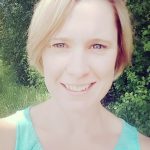 Joanne O’Meara
Joanne O’Meara
Department of Physics, University of Guelph
“I am no longer afraid of physics!”
“She made me love physics!”
“She is my physics hero!”
Joanne O’Meara consistently receives accolades from her students for her enthusiasm and passion for teaching, and for her ability to make physics accessible and engaging. Her pioneering work in using active-learning techniques in her classes and her willingness to explore and share new teaching ideas have revolutionized the teaching of Physics at Guelph and across Canada.
The breadth of Joanne’s activities, the depth of her passion, her extensive work with national organizations, and her leadership in the community are truly remarkable. From organizing workshops for local elementary and high school teachers, to chairing the National Task Force on Undergraduate Physics Revitalization, she is committed to sharing the beauty of Physics. This commitment extends to creating and appearing in everyday science segments for the general public on the Discovery Channel. As broadcaster Jay Ingram says “Joanne is a great teacher. I can’t imagine devoting more talent and hard work to ‘Being That Teacher’.”
Joanne’s excellence in teaching and her leadership in Physics education are truly transformative. As another of her champions notes: “Physics education research and development is in a very healthy state in Canada in no small measure due to her contributions and leadership.”
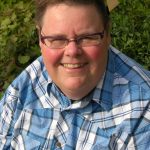 Wendy Pearson
Wendy Pearson
Department of Women’s Studies and Feminist Research, Western University
Good professors inspire their students to be better scholars. Great professors inspire students to be better people. Wendy Pearson’s approach to social justice is personal. She starts with individuals and figures out what they need to function in the world, and she makes the changes happen that will make those individuals comfortable and capable. With patience and quiet guidance, she creates a classroom community of engaged individuals who discover how to learn and find their own place. In short, she prepares students to change the world. Through her teaching, students have been inspired to create a register of safe spaces for members of the LGBTQ+; to advocate for changing the rules about donating blood for gay men; and, to insist on non-binary identity options on birth certificates and passports.
Wendy led the development of a more inclusive culture through co-founding the Queer Caucus at Western, which links LGBTQ+ people and their allies from across campus into a strong community. Under her watch, the Department of Women’s Studies and Feminist Research restructured its curriculum, and in a time of diminishing enrolment in humanities programs, course enrolments quadrupled, with new courses including the wildly popular “Women and Popular Culture: Garbo to Gaga.” At time when the liberal arts are debated in the media, she demonstrates—and indeed, models—the profoundly transformative power of the humanities.
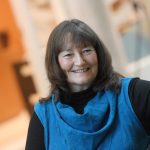 Anne Marie Ryan
Anne Marie Ryan
Earth Science Department, Dalhousie University
Those who have a conversation with Anne Marie Ryan about teaching and learning immediately feel inspired and transformed. Anne Marie is a visionary who passionately investigates teaching with her students and colleagues alike. As a professor of geology, she engages her students by probing the depth of geological knowledge as well as exploring ethical responsibilities and environmental issues. Anne Marie reaches for the frontier of the human mind to awaken her students’ thirst for the natural world and motivates them to be socially responsible citizens who can make positive changes in the world. She has facilitated workshops on geo-ethics at international conferences.
A celebrated scholar and teacher, Anne Marie developed a program for early career science faculty and established a science leadership and communication certificate. She is recognized by her peers as a “champion for a different kind of education for science students.” Creating spaces where students can thrive, take risks, and share their unique perspectives, Anne Marie instills her students with powerful scientific values and exceptional reasoning skills. As one of her students says, “Dr. Anne Marie Ryan inspired me to take risks, to challenge myself, and step outside my comfort zone. Ultimately, to become a stronger leader.”
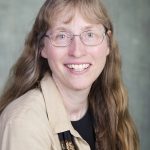 Helga Thorson
Helga Thorson
Department of German and Slavic Studies, University of Victoria
Helga Thorson strives to get her students and colleagues ‘to think higher and feel deeper’. Through her ground breaking Holocaust I-witness field school, she represents the ultimate goal of education: making humanity better. Helga’s innovations with experiential, place-based field schools support intergenerational learning and build support for intercultural differences. Her teaching inspires ethical transformation in her students and changes their lives. Helga has inspired colleagues from Victoria to Vienna who seek ways of teaching that reach students’ hearts as well as their minds.
Helga’s students and colleagues recognize her success in creating a model for education that places the whole human being in an ethical engagement with humanity’s past, present, and future. Her students gain from critically contemplating an historical site and learning how what occurred there is memorialized, or not, in the present day. Her students hear the testimonies of those who lived through an event and come to see themselves as the bearers of memory responsible for ensuring human rights. While Helga’s primary focus in Germanic studies is on the Holocaust, she connects a global community of field school educators, and her scholarship draws important parallels between Holocaust and Indigenous Studies. As Helga says, “deep learning is not easy. It involves challenging who you are as a person, a society, a culture, and sometimes as a nation.”
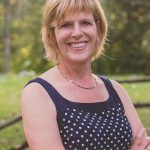 Sarah Todd
Sarah Todd
School of Social Work, Carleton University
Sarah Todd teaches and leads by listening passionately to people’s stories, then responds ethically with humility, collegiality and collaboration. Sarah calls this ‘critically reflective conversation’. When her Social Work students have thoughtful and respectful conversations about challenging issues, they see links between their individual goals and their civic responsibility for enhancing democracy. For example, she uses simulations where her students learn to discuss sex practices with clients in a respectful manner. As one of her students says, “Dr. Todd has truly changed my life in more ways than one and continues to be an empowering leader that demonstrates critical values and ethics in all the work she does…a driving force for change, equity and inclusion.”
Sarah innovates in her own class and then shares these innovations across her institution and beyond. For example, Sarah integrated e-Portfolios first in her own class to enhance reflection, then integrated portfolios across the program. Next, she supported their use at the institutional level through a peer support network, and finally shared the lessons learned nationally. Sarah’s educational leadership is collaborative. With colleagues she established the first publicly funded school of Social Work in the Dominican Republic. She works with students and instructors to evoke a sense of awe and humility ensuring the critically reflective conversations continue.